Exclusive! Jeevitha Rajashekar: While making Shekar, I did have the fear of not being in sync with the times
The actress and director talks about her decision to remake Joseph, making her voice heard in a male-dominated industry and why she believes the era of remakes may be almost over…
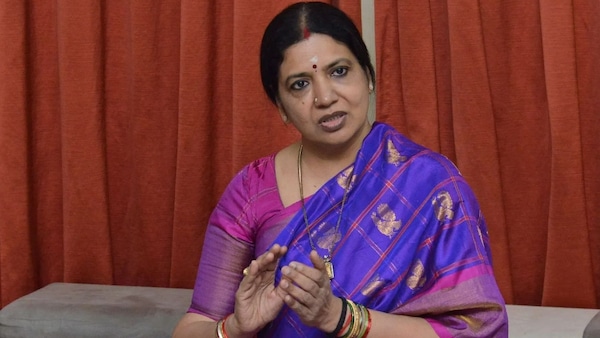
Last Updated: 01.54 PM, May 19, 2022
Like her, dislike her but you can’t ignore Jeevitha Rajashekar’s voice in Telugu cinema. The actress, director has often been at the receiving end for guarding her husband, actor Rajashekar’s career beyond necessity but believes that she is being targeted merely because of her gender.
Leadership comes quite naturally to her and it’s not surprising that she’s represented the industry on several forums and also fits the profile of a director aptly. Well, she’s next wielding the megaphone for Shekar, the Telugu remake of the Malayalam drama Joseph, that stars Rajashekar, daughter Shivani Rajashekar, Muskaan Khubchandani and Athmiya Rajan.
In conversation with OTTplay.com, Jeevitha looks back at her three and a half-decade stint with cinema, the decision to direct Shekar and how she learnt on the job despite not being a natural.
On returning to direction after a decade and the decision to remake Joseph
I never had the ambition to direct a film and always call myself an accidental director. When we wanted to remake Vikram’s Sethu in Telugu, we considered several filmmakers and they were ready to come on board too but wanted to make a few changes to the original. It wasn’t something we were happy about and we wanted to stay true to the spirit of Sethu; hence I took over and made Seshu.
I didn’t know anything about lens, framing and many technical aspects but it was cinematographer Hari Anumolu who was very patient and helped me learn while executing what I wanted. It was a similar case with Shekar too, where we approached Karuna Kumar (who didn’t have time) and Neelakantha. Neelakantha wanted to give his spin to Joseph (which we weren't happy about) and later we moved on to a newcomer. When that too didn’t work out, I directed Shekar myself.
What about Joseph struck a chord with you? Did you feel the need to change the script or improvise?
Joseph is a film that kept you on your toes, was gripping and unpredictable. I however felt a few aspects could’ve been improvised better and came up with my version of the screenplay. Rajashekar will appear like a common man in the film and every loner will relate to his character. The screenplay is very realistic. We roped in Shivani for the movie because the father-daughter sequences are crucial and we felt the depth of the emotion will come through with her presence.
You gave up on a flourishing career as an actress across multiple industries in 1990. Did you believe you were done with acting?
At the peak of my career, I gave up films and got married to Rajashekar. I enjoyed acting but when I met Rajashekar, developed a rapport with him and fell in love, I was eager to step into a new phase and settle down. Probably, it’s for the fact that he’s such a warm person and I felt I would have a better life being his wife than as an actor. I just chose marriage over acting, I can’t point out any reason beyond that.
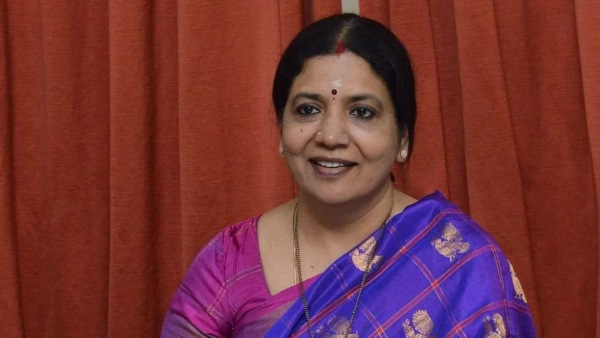
Before you made your directorial debut with Seshu back in 2002, you were away from the industry for a little more than a decade. What was it like to not be in the limelight and be a regular woman?
Honestly, I was never this regular woman in a household. Despite not acting in films, I was always amid limelight, very much within the industry, standing with Rajashekar at every step, like his shadow. I was part of most press meets with him and we together even ran a charitable trust for a long time. I was actively involved in managing the day-to-day affairs of the trust, supporting children’s education, and their medical needs.
Given that our funds too have dried up over the years, we may not be so active with our trust activities anymore, but we’re doing the best we can within our capacity. Even our kids, ever since they were a month old, used to accompany us to our shoots and are aware of everything that goes around in the industry. The crew, who were part of shoots then, now come to us and recollect the times they carried around Shivani and Shivathmika as babies.
A lot about filmmaking has changed since the 80s and 90s during which you were a part of the industry. When you made Seshu, was there a worry that you wouldn’t be in sync with the times?
We have been regularly making films every year; so we always learnt from directors and technicians in the industry. We shot most of our films at Annapurna Studios, took note of the changes in sound mixing, and sound design and I keep updating myself by seeing others at work. However, with Shekar, I must admit I had a fear if I would match up with the times owing to the generation gap. The gap is very obvious even within a family.
For instance, what’s interesting for us may be a cliche for this generation. I take the term ‘cliche very seriously and I use it as an opportunity to understand this generation’s tastes better, especially with sentimental scenes, dialogue delivery, how much to spoon-feed a viewer and knowing where to stop. In the 70s, we were quite okay with the idea of NTR romancing a Sridevi, but there’s every chance that someone may give a paedophilic angle to it today. So, you evolve.
I also learnt a lot about filmmaking during PSV Garudavega, we’re yet to see an action film in Telugu that’s a match to its technical standards, be it CG, DI, VFX and the execution. We had even shot in places like Georgia, and Bangkok.
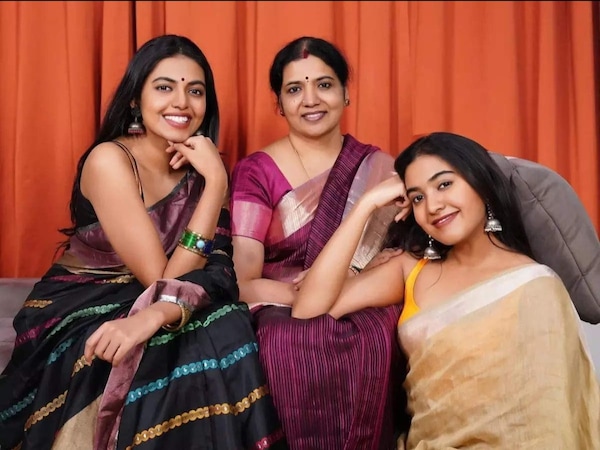
Your daughters, Shivani and Shivathmika, may have been of some help in this transition phase?
I learned a lot from my children. Till a certain age, parents are the teachers for children, but the tables turn when they become teenagers. We upgrade ourselves with their help, be it mobiles, social media or other forms of technology. I make it a point to be a friend to my daughters first than a mother. They treat me like a student and I don’t mind that because I’m learning a lot of things from them.
I’ll never stop them from saying what comes to their mind, they discuss everything from their crush to their friend’s love affairs with me. Their friends too feel secure in my company. There are no filters in our conversations because I’ve passed through their stage and know what they go through and how they’ll mature in the times to come. I can’t say I’m on par with this generation but I am more or less in sync with their line of thought. I learn because I consider my daughters my teachers.
The industry is quite used to taking instructions from men, given there are hardly any women calling the shots, more so when you started as a director in the 2000s. Was it a struggle to make people stick to your word?
Right from the day I got married to Rajashekar, I listened to most scripts that came my husband’s way. He can’t sit and listen to hundreds of scripts, there had to be a filter. Managers generally do that job, but I did the job for him instead. If I liked a script, then we would call the director for a second narration with him or else be frank that we didn’t like a particular script. There were talks in those days that I was being a roadblock to directors. They didn’t mind pitching stories to managers, and PRs but were hesitant to tell me just because I was a woman?
I have been fighting the perception of me being a ‘control freak’ two and a half decades ago and it continues even today. One day, when there was no makeup man on the set, I helped Rajashekar and the crew objected that a woman couldn’t be a stylist. They said that a woman couldn’t get a card from the makeup association but then CM Jayalalithaa demanded them to give me one.
Male chauvinism isn’t a thing of the past; it exists even today. Half of the issues that I’m still fighting today are because of my gender. There can’t be a change overnight but things are taking a turn for the better. For the change to set in, women have to be very strong. Many people try to pull you back and a section of media still misuses its authority to point a finger at me needlessly. Give it back when necessary and move forward is my motto. The only thing I’ll tell women is - don’t stop your fight as long as you’re right.
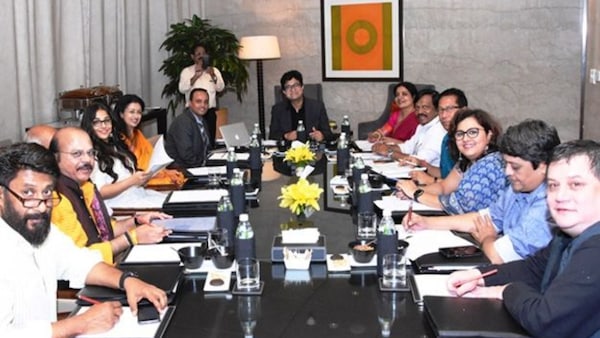
Tell us about your experiences being a part of the CBFC board. What is it like to look at the industry from the other end?
Being part of the CBFC has been an amazing experience. That way, I can help the industry in some form. If someone who isn’t from the industry is in my place, he/she would go by the rulebook and they won’t understand the last-minute emergencies and practical difficulties of the producers. People announce release dates but don’t get a censor slot and are under pressure - our head, Prasoon Joshi, being an industry person understands these problems.
Now when producers call me and tell me that they need to clear the pre-release formalities at the earliest possible date, I solve their problems within minutes. Being a producer myself, I faced such problems and am very aware of the bottlenecks in the process. I am very happy now because I am in a position to help so many people.
We’re also working towards making the censor guidelines clearer in our board meetings. The way traditional women dress in Kerala, it’s authentic in Mollywood but termed vulgar here. Who decides what’s right or wrong? We plan to conduct meetings between the board and the industry to understand each other better. It’s a work in progress.
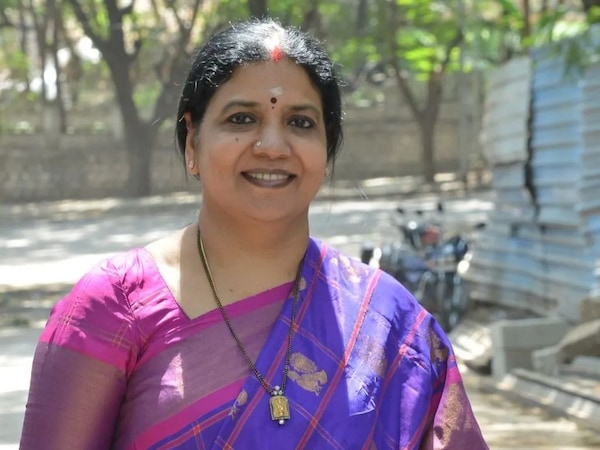
When you say that the era of remakes is nearly over, we have an example of a Bheemla Nayak, where the film worked as an adaptation and it didn’t opt to be a frame-to-frame remake of Ayyappanum Koshiyum. Instead of loyal remakes, do you think adaptations are the way forward?
There’s no doubt that this is an era of adaptations, frame-to-frame remakes no longer work. However, you can’t tamper with the soul of the film and expect it to work. Bheemla Nayak worked because of the big names involved with it - Pawan Kalyan, Rana Daggubati, Trivikram and a production house like Sithara. At the end of the day, the verdict is clear that the film missed out on the nuance of the original, Ayyappanum Koshiyum. Had the film been made without these big names, it wouldn’t have been a hit. Many films in Rajashekar’s career, like Maa Annayya, Manasunna Maaraju, and Ahuthi were remakes and they worked because the emotion, and drama in it were intact and required changes were made in the timing of the sequences. The remake of Hridayam is in the offing too; but can it be remade at all? Remakes are on a shaky terrain these days.
Subscribe to our newsletter for top content, delivered fast.

